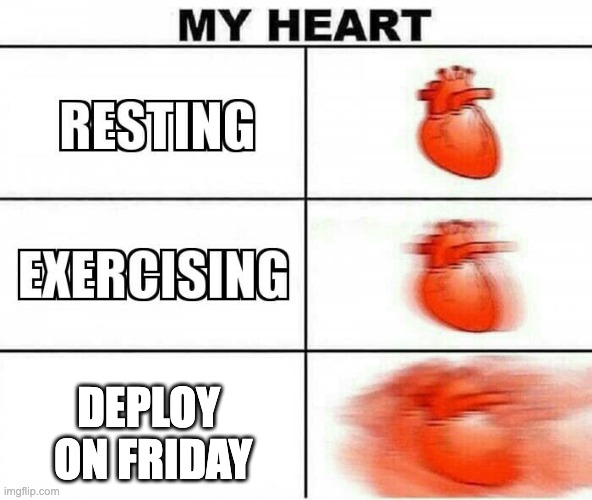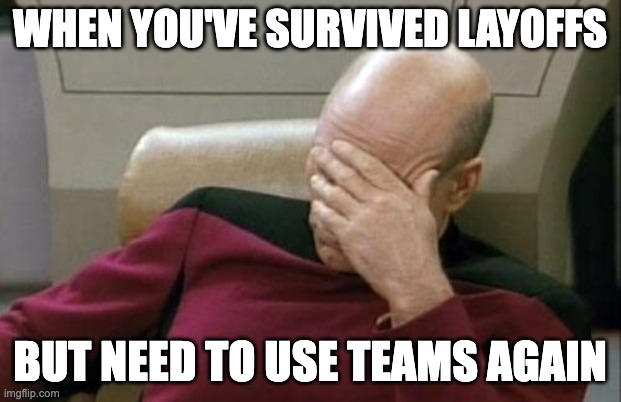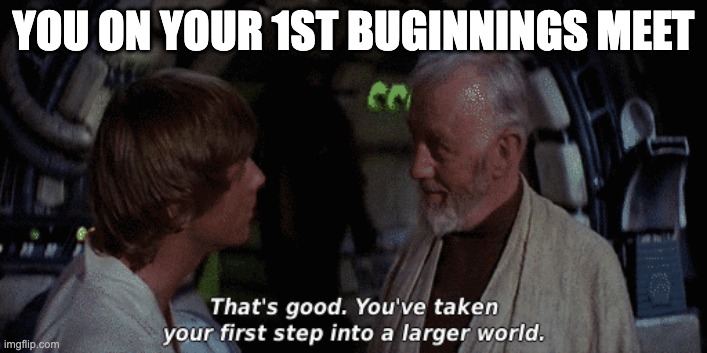Since you are reading this post, it means that working in IT is not a “marriage of convenience” for you. That’s good! On the other hand, worse days happen to everyone, so today we’ll talk about how to overcome them.
1. Sometimes it’s hard to love programming
You devote yourself to her every day. It’s what wakes you up in the morning or keeps you awake on a Friday night. It makes your gray cells soar to the heights of their capacity, and your body is able to take in incredible doses of caffeine. Sometimes it torments you, makes you anxious, puts you in a reverie, but… immediately afterwards it gives you the satisfaction and joy of solving another problem. Such is the love for IT. A difficult love.

Nurturing this love is not easy. Repetitive tasks, corporate gibberish, an excess of idle meetings, and instead of the freedom and creativity you were promised – protocols and documentation. All of this is discussed in a text in which Emmanuel Tejeda explains the difference between the love of programming and the love of being a programmer. In his case, the way to rekindle one’s passion is to train others. In yours, it could be something completely different – developing your own product, working in the gaming industry, programming at a company that aligns with your values or relates to your hobby, or… a promotion. Just be careful, because Emmanuel rightly warns that people in senior positions are sorely lacking in code work. Nothing comes for free.

And if your love for IT has begun to face a serious crisis, it is worth taking care of yourself first and foremost. I know, hardly noble, but you are the emotional being in this relationship. Tom Deneire has 10 tips for you to help you not go crazy in IT. I think he hits the nail on the head especially on the point about the “internal storyteller”. This is about a trap that many programmers (including the author of the linked text) fall into. They engage in a dialogue with themselves, especially when explaining strange application behavior, analyzing weaknesses, or validating solutions several times. It’s behavior that compounds overwhelm and stress, so Tom suggests stopping it as soon as possible. Loneliness excludes love, even if we’re only talking about “love” for programming.

I don’t want to end this thread so darkly, so I’ll leave here a short romantic poem in Shakespearean style:
Oh code, thou art my fair and lovely dame,
In thee I find a joy that’s hard to name,
For in thy syntax and thy logic true,
My heart finds peace and solace anew.
Thou art the light that guides my weary way,
And with each line I write, my love doth stay,
For in thy elegance and beauty rare,
I find a love that’s pure and true and fair.
Oh software, thou art my heart’s delight,
And with each bug I fix, my love takes flight,
For in thy complexity and thy grace,
I find a love that’s deeper than any space.
So let us code together, hand in hand,
And build a world that’s full of love and grand,
For in thy power and thy might,
We find a love that’s endless and bright.
Not bad, right? However, I have to honestly admit that I didn’t write it myself. It was done for me by ChatGPT 🤷
Sources:
- https://levelup.gitconnected.com/why-i-love-programming-but-dont-love-being-a-software-developer-b68c1c76c443
- https://dev.to/tomdeneire/10-tips-for-tackling-mental-health-issues-as-a-software-engineer-or-anyone-else-really-4f1p
- https://chat.openai.com/chat

2. GitHub reduces team by 10% and sends the remaining people home
I must also mention the latest news from GitHub. The company has made radical moves to quickly heal its finances and ensure its stability. Again, we heard statements about difficult but necessary decisions that mean layoffs.
The GitHub team will bid farewell to 300 people, or 10% of all employees. Earlier (specifically, in mid-January), the company halted its recruitment efforts, which proved to be insufficient or simply part of a broader plan.
The remaining people are to work entirely remotely to further support the company’s cost-cutting efforts. Thomas Dohmke, CEO of GitHub, acknowledged in an email to the team that offices around the world had been shining empty for a long time anyway, but that leases would not be terminated. At the same time, he announced that the replacement of company laptops would take place not every three, but every four years.
What’s more, GitHub is to start using Microsoft Teams as an official video conferencing tool. Seriously? A Microsoft-owned company is only doing this at a time when it REALLY needs to cut expenses?

Source:

3. Just starting your career? Be sure to follow BUGinnings!
I’ve written a bit today about the love of IT, so if you’re in the infatuation stage or your feeling has been born recently and you’re wondering “What’s next?”, I’d like to heartily recommend the BUGinnings in IT series to you. In a week’s time, on February 21, the 7th edition of the event, which helps you take your first steps in a career as a programmer, will take place.

If you live in Poland, it’s worth a trip to Krakow to listen live to three interestingly promising lectures. And if you are separated by hundreds or thousands of kilometers – nothing lost. Presentations from BUGinnings in IT will be recorded and uploaded to website in the future so you can watch them comfortably in your home office (though unfortunately you’ll miss the shared beer).
This time the following topics await us:
- Are you destined to deal with the ever-changing tech landscape?
Bartek Antoniak, Head of Cloud Engineering at VirtusLab - How to make the Internet accessible to everyone
Dominika Zając, Software Engineer at Qualtrics - Personal Brand: How to Build the Brand Called ‘You’
Wojtek Gawroński, Senior Developer Advocate at AWS
I hope I have piqued your interest. And if so, be sure to register on the event page.





